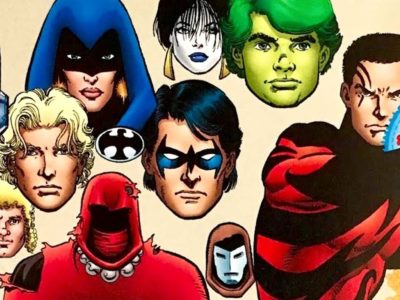
[ad_1]
As Thor settles back into the throne of Asgard, the God of Thunder reveals the strange price that comes with being of his unique race.
WARNING: The following contains spoilers for Thor #15, by Donny Cates, Michele Bandini, Elisabetta D’Amico, Matt Wilson and VC’s Joe Sabino, on sale now.
Blending cosmic and fantasy elements, the Asgardians of the Marvel Universe more than live up to their status as demigods, living across the Ten Realms for millennia as part of their naturally prolonged lifespan. While Thor has mingled with humanity for centuries, from his beginnings as an upstart Asgardian prince to his current status as an Avenger, the Odinson has been teased to live for centuries beyond his fellow Avengers as an aging King of Asgard in a barren universe. And in a rare moment of vulnerability with a trusted, mortal friend, Thor explains exactly what kind of toll this takes on his psyche year after year.
As Asgard celebrates the defeat of Donald Blake, Thor’s magical shadow that sought to destroy the Norse World Tree Yggdrasil, the God of Thunder appears moodier than usual in the face of such festivities. With his mastery of his trusty hammer Mjolnir still in flux, Thor ventures to Earth and privately confides in Captain America that he can’t recall any of their recent adventures off the top of his head, including the crossover event King in Black, due to the nature of Asgardian physiology. Given that an Asgardian’s natural lifespan lasts for millennia, the days and months that Thor spends on Earth feel like relative seconds and minutes to him in his memory, having outlived many human compatriots on Earth before.
The unique nature of Asgardian physiology has been depicted to show the whole history of the Marvel Universe before. As a significantly younger man, Odin founded a prehistoric iteration of the Avengers in the year 1,000,000 B.C. and fathered Thor with the Phoenix Force, with the All-Father surviving to the relative present of the Marvel Universe as an old man and former King of Asgard. Over a million years later, Thor as a young man mingled with humans, most notably during the Viking Age, wielding the legendary sword Jarnbjorn as he fought fantastical threats. Flash-forwards have revealed Thor as an old man thousands of years in the future, engaging Loki and Gorr the God Butcher one last time.
Thor’s revelation about the nature of his memories gives the Asgardian Avenger a much more tragic dynamic with his friends and allies on Earth. For Thor, his friendship with iconic characters like She-Hulk and Iron Man is just a relative blink of an eye for him, always unsure how long in humanity’s exponentially shorter lifespan he will reappear and if they will even still be alive to see him again. It also means that some of the Avengers’ most memorable adventures together barely register a lasting impression with Thor, no matter how prominently he brings the thunder on these occasions.
Donny Cates and Nic Klein’s run on Thor has depicted the God of Thunder as a man carrying a lonely burden, both as King of Asgard and as an outsider among those he holds in the highest regard throughout the Marvel Universe. Thor’s Asgardian perception of time and naturally prolonged lifespan certainly underscores these themes, emphasizing that Thor’s powers and ascension to the throne comes at a price as the God of Thunder refocuses his priorities to his kingly responsibilities, unsure if the Avengers will even exist the next opportunity he has to come to Earth.
About The Author
[ad_2]






